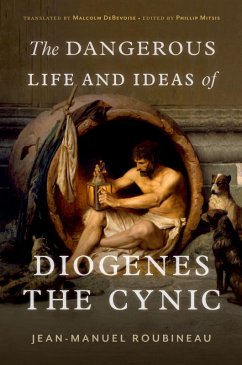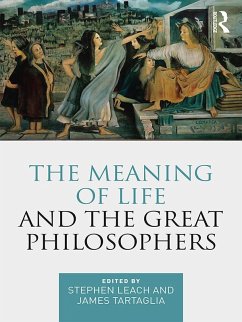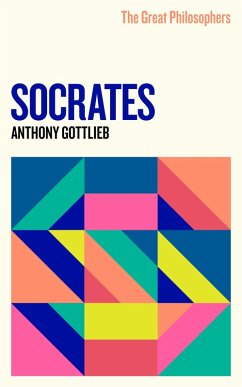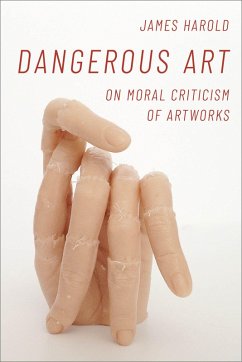
The Dangerous Life and Ideas of Diogenes the Cynic (eBook, ePUB)
Versandkostenfrei!
Sofort per Download lieferbar
10,95 €
inkl. MwSt.
Weitere Ausgaben:

PAYBACK Punkte
5 °P sammeln!
An engaging look at the founder of one of the most important philosophical schools of ancient Greece. The ancient philosopher Diogenes--nicknamed "The Dog" and decried by Plato as a "Socrates gone mad"--was widely praised and idealized as much as he was mocked and vilified. A favorite subject of sculptors and painters since the Renaissance, his notoriety is equally due to his infamously eccentric behavior, scorn of conventions, and biting aphorisms, and to the role he played in the creation of the Cynic school, which flourished from the 4th century B.C. to the Christian era. In this book, Jean...
An engaging look at the founder of one of the most important philosophical schools of ancient Greece. The ancient philosopher Diogenes--nicknamed "The Dog" and decried by Plato as a "Socrates gone mad"--was widely praised and idealized as much as he was mocked and vilified. A favorite subject of sculptors and painters since the Renaissance, his notoriety is equally due to his infamously eccentric behavior, scorn of conventions, and biting aphorisms, and to the role he played in the creation of the Cynic school, which flourished from the 4th century B.C. to the Christian era. In this book, Jean-Manuel Roubineau paints a new portrait of an atypical philosopher whose life left an indelible mark on the Western collective imagination and whose philosophy courses through various schools of thought well beyond antiquity. Roubineau sifts through the many legends and apocryphal stories that surround the life of Diogenes. Was he, the son of a banker, a counterfeiter in his hometown of Sinope? Did he really meet Alexander the Great? Was he truly an apologist for incest, patricide, and anthropophagy? And how did he actually die? To answer these questions, Roubineau retraces the known facts of Diogenes' existence. Beyond the rehashed clichés, this book inspires us to rediscover Diogenes' philosophical legacy--whether it be the challenge to the established order, the detachment from materialism, the choice of a return to nature, or the formulation of a cosmopolitan ideal strongly rooted in the belief that virtue is better revealed in action than in theory.
Dieser Download kann aus rechtlichen Gründen nur mit Rechnungsadresse in A, B, BG, CY, CZ, D, DK, EW, E, FIN, F, GR, HR, H, IRL, I, LT, L, LR, M, NL, PL, P, R, S, SLO, SK ausgeliefert werden.













